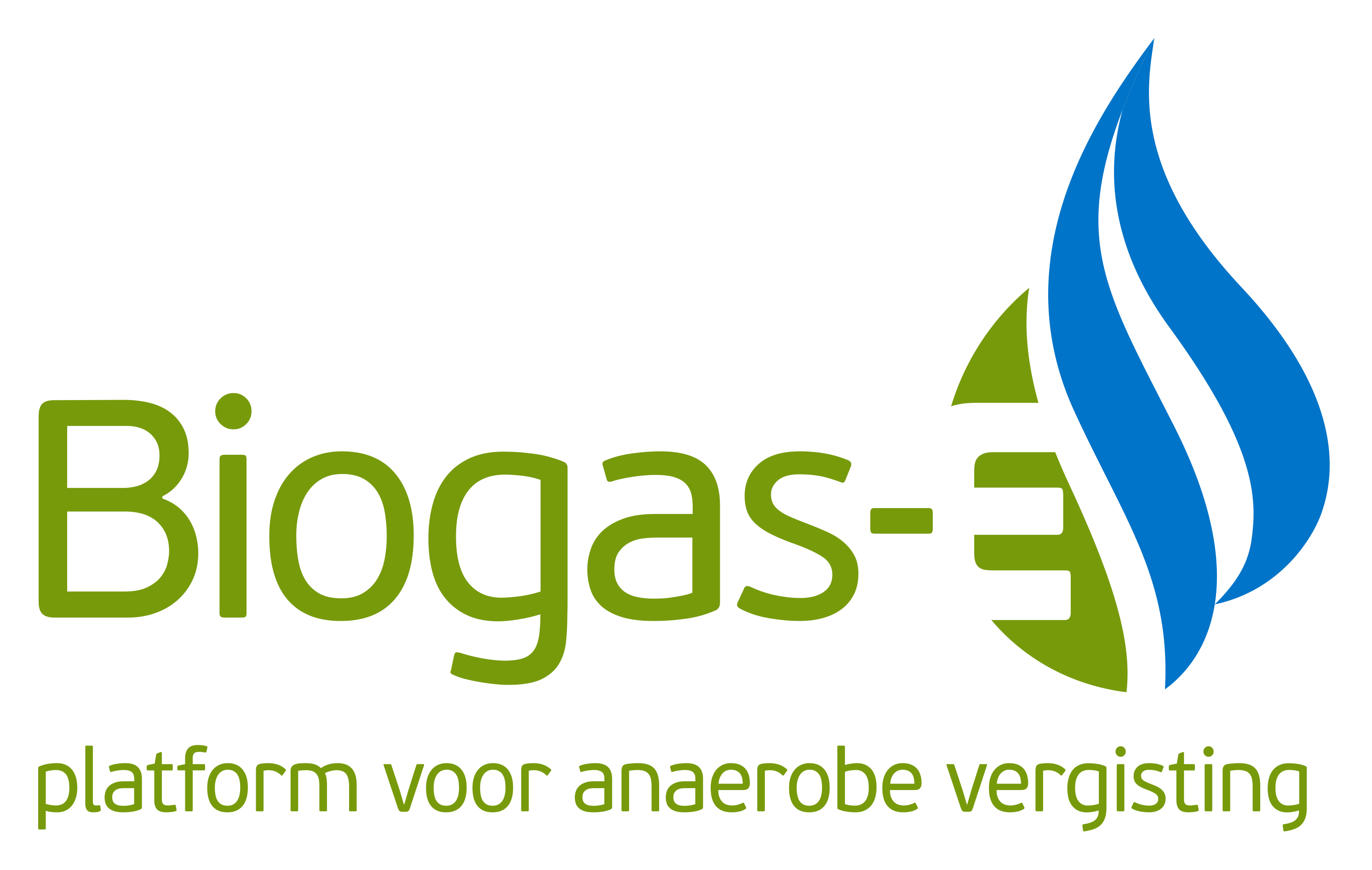BioDEN: Biorefinery approach to exploit digestate as key feedstock in the energy - nutrient nexus
Turkish version: https://www.ostimenerjik.com/bioden-projesi-1211
English version: see below
De afzet van digestaat blijft een uitdaging in Vlaanderen die het business model van de biogasinstallaties onder druk zet. Met het onderzoeksproject BioDEN wil Biogas-E, samen met Vlaamse en Turkse partners, de rendabiliteit van vergistingsinstallaties verhogen door het realiseren van een doorgedreven valorisatie van het digestaat.
Het innovatiedoel van dit project is de waarde van digestaat te verhogen, door enerzijds een verwerkingscascade te implementeren om nutriënten (N, P, K, C) terug te winnen en anderzijds energiedragers (biogas) te produceren gekoppeld aan de anaerobe vergisting. De gegenereerde producten zullen grondig worden doorgelicht op basis van kwaliteit en het potentieel te beantwoorden aan de RENURE-criteria.
Met steun van:
 |  |
Het project werd ingediend via de CORNET oproep, met Vlaamse partners Universiteit Gent, KU Leuven, VCM en Biogas-E, in samenwerking met Turkse partners Ostim Enerjik en Marmara Universiteit. Het project duurt twee jaar (en vier maanden door verlenging) en start begin januari 2022.
English version:
The application of digestate as fertilizer remains a challenge in Flanders and Turkey. This challenge is a burden for the business model of biogas plants in both countries. The BioDEN project aims to create extra revenues for the biogas sector via developing a technology cascade approach for an integrated enhanced biogas production and efficient recovery of nutrients (N, P, K) as (novel) bio-fertilisers from digestate.
The target of the project is to increase the value of digestate by focussing on different elements: (i) enhanced biogas production via anaerobic digestion (AD), (ii) ammonia recovery via stripping and scrubbing, (iii) phosphorus recovery via precipitation and adsorption and (iv) integrated value chain assessment, including pot trials and scenario analyses. Although some of the processes already receive attention in research and in industry, effective linking of the processes to obtain a successful cascade is still missing.
Concretely, the BioDEN-project will result in (i) 10-20% more biogas (at constant input) compared to standard current practice, due to reduced ammonia inhibition, release of bio-available organic matter and high organic loading rates, (ii) an increase in CH4 content of the biogas by 3-5% due to CO2-stripping, (iii) optimised processes for the recovery of nutrients into novel (ammonium citrate, ammonium bicarbonate) and known (ammonium sulphate, struvite, calcium phosphate) bio-fertilisers.
The BioDEN consortium is composed of 6 partners carefully selected by the project coordinator, Biogas-E (BE). It involves a balanced expertise composition of 3 RTOs and 3 Association Organisations (AO) from Flanders (BE) and Turkey. Innovation and research activities will be carried out by KU Leuven (BE), UGent (BE) and UMARMARA (TR) Universities, each specialised in different aspects of the full BioDEN concept. AO VCM (BE) will provide essential expertise for the technical, economic and ecological impact assessments of the final technologies and products.
With support of:
 |  |
BioDEN is lid van de / BioDEN is member of Biorefine Cluster Europe


